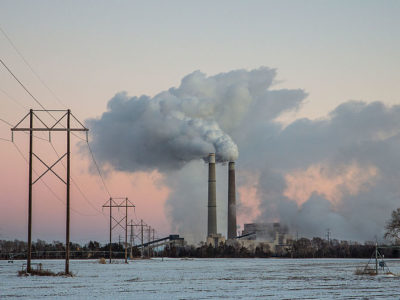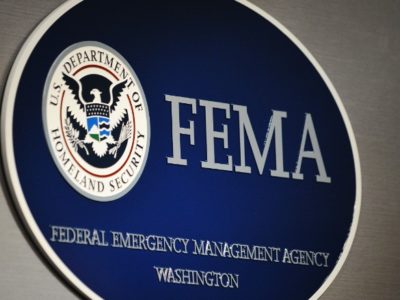One State, Two States, Red States, Blue States: Federalism Hypocrisy in Trump’s EPA
Regulatory approaches for vehicles versus power plants show the Trump White House’s true motivation - and it’s not states’ rights.
As my colleague Cara Horowitz has already blogged, the Trump EPA is preparing to announce a Clean Power Plan replacement today, rolling back Obama-era efforts to regulate greenhouse gas emissions from existing power plants. The plan is expected to largely shift the regulatory burden to states, essentially leaving it up to them to decide whether and how stringently to regulate. Draft talking points leaked to E&E News argue for broad deference to states, since they “...
CONTINUE READINGEPA to Propose Replacing Clean Power Plan with Something Much, Much Weaker
It may not be legal, and grid experts say it's certainly not good policy
Over the weekend, the New York Times reported that EPA will soon release its proposal for replacing the Clean Power Plan, sharing some leaked details. Here's a quick reaction. As a reminder, the Clean Power Plan is the regulation enacted by EPA, under President Obama, to limit emissions of carbon dioxide from existing fossil-fuel-fired power plants. It was, and remains, the only significant federal regulation that directly limits carbon dioxide pollution from th...
CONTINUE READINGGreen Groups and Corporate Sustainability
Environmental NGOs sometimes partner with business, sometimes administer “tough love.”
Much of what environmental groups do involves the government: lobbying Congress, participating in rulemakings, and suing when all else fails. But there is also an interesting story to be told of how these groups relate to the corporate world. Sometimes they play the good cop, forming partnership with companies; sometimes the bad cop, trashing the company’s policies in the media. Environmental Defense Fund has been the leader among environmental organizations in part...
CONTINUE READINGThe Trump Administration Is On An Environmental Losing Streak
Courts Continue to Strike Down Anti-Environmental Actions
While the Trump Administration's assault on the environment is alarming, courts are continuing to hand the administration an impressive string of losses that mean that, at least in the short term, the assault is much less effective than the administration's claims of deregulating the economy would lead us all to believe. In just the last 8 days, the Administration has lost four high profile environmental cases, adding to a string of losses over the past 18 m...
CONTINUE READINGWhen No News Would Be Good News: The Ongoing Trials of Prop 65
California’s Proposition 65 law has been consistently making the news lately — but not for the reasons it should.
This summer, California’s unique-in-the-nation law governing human exposure to toxic chemicals, Proposition 65, has been consistently making Page 1 — but in ways that belie the adage that “all publicity is good publicity.” Most heavily reported, and acutely politically perilous to the law’s supporters, has been a state trial court ruling that coffee must bear a warning to potential consumers that it contains a cancer-causing chemical (acrylamide). The speci...
CONTINUE READINGSouth Carolina Federal Court Blocks Trump EPA Attempt to Suspend Clean Water Rule
G. H. W. Bush Appointee Issues Nationwide Injunction Because Agency Rescinded Prior Rule Without Public Discussion of the Rule's Merits
Today, Hon. David Norton of the Federal District Court for the District of South Carolina (an appointee of George H. W. Bush) issued a nationwide injunction barring the implementation of the so-called "Suspension Rule" that effectively rescinded the Waters of the United States Rule (also called the WOTUS Rule or the Clean Water Rule) previously issued under the Obama administration. This decision, which ensures that the federal government retains authority to keep land ...
CONTINUE READINGIs FEMA Ready For a Tumultuous Future?
FEMA has a lot of work to do to get up to the mark on disaster response and risk mitigation.
We face a future of increasing peril from disasters. One reason is climate change; another is that more people live in coastal areas where risks are especially high.We're currently seeing the results of climate change in the California fires, and we saw both factors at work in last year's flooding in Houston after Hurricane Harvey. FEMA is on the front line for dealing with these risks.Unfortunately, it isn't ready for what it awaits it. FEMA's most prominent missio...
CONTINUE READINGNYC’s Cap on Uber and Lyft Is an Important Step for Cities
A temporary pause to identify regulatory solutions to social and environmental impacts
Last week, the New York City Council enacted a temporary cap on Uber, Lyft and other transportation network company (TNC) vehicles in the city, blocking the issuance of new vehicle licenses for a 12-month period while the city conducts a study to determine whether to enact long-term regulations limiting the number of TNC vehicles on city streets. Much of the coverage of the measure has rightly focused on driver welfare; the cap was paired with a mandate to set a minimum ...
CONTINUE READING68 Law Professors Urge Withdrawal of EPA Proposal to Limit Use of Best Science in Agency Rulemakings
Emmett Institute Faculty Submit Letter on Behalf of Environmental and Administrative Law Professors from 47 Universities Across the U.S.
Today, on behalf of 68 environmental and administrative law professors affiliated with 47 universities around the country, Sean Hecht and I filed a comment letter urging EPA’s Acting Administrator Wheeler to withdraw the misleadingly-named “Strengthening Transparency in Science” proposed rule. My Legal Planet colleague, Dan Farber, has written here and here about some of the proposed rule’s defects. Many thanks go to Dan, Amanda Leiter, and Justin Pidot for...
CONTINUE READINGTrump Loses Another Big Court Case
Ninth Circuit reverses Pruitt decision to allow a dangerous pesticide on food.
Last Thursday, the Ninth Circuit ruled that Scott Pruitt had no justification for allowing even the tiniest traces of a pesticide called chlorpyrifos (also called Lorsban and Dursban) on food. This is yet another judicial slap against lawlessness by the current Administration. Chlorpyrifos was originally invented as a nerve gas, but it turns out that it kills insects quite satisfactorily. (I remember ads for “Big Foot Lorsban” from back when I lived in downstate...
CONTINUE READING










